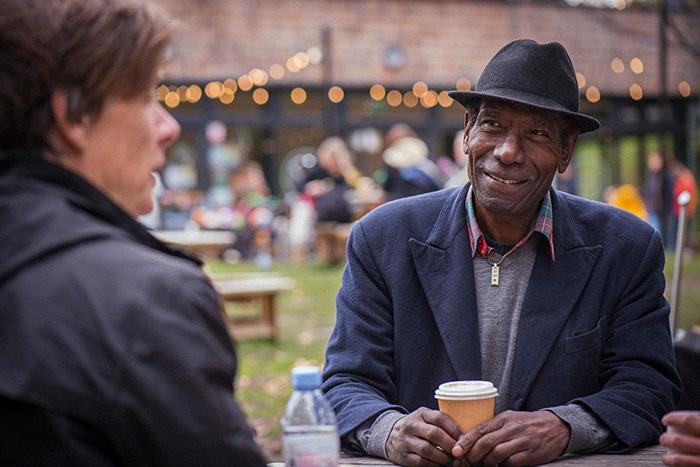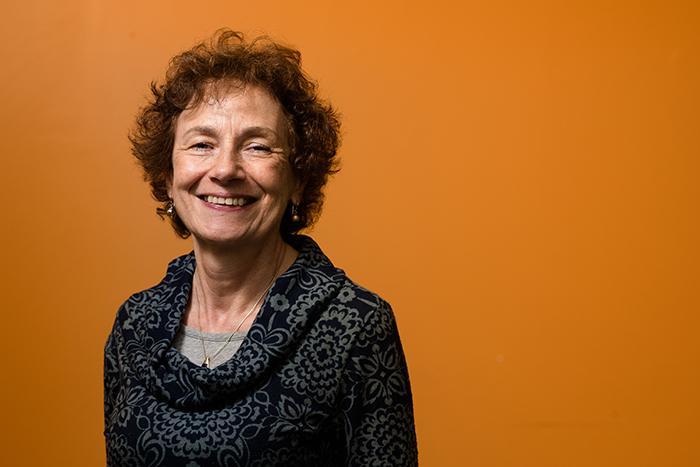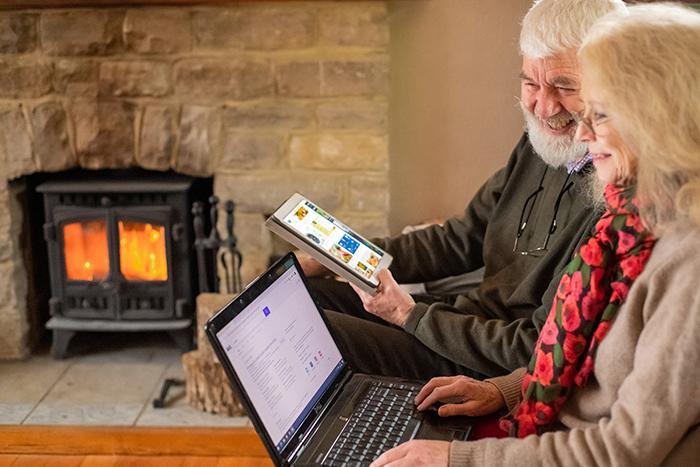Using research into the lived experience of people with dementia as a foundation for training the dementia workforce
Research is changing perceptions of dementia by giving voice to those living with it.

Pioneering research by the University of Bradford is helping transform how society views dementia and is helping enable those living with the condition to enjoy a better quality of life.
The University has a long history of expertise in dementia studies, laying the foundations of person-centred dementia care almost 30 years ago. It established its Experts by Experience panel of people living with dementia and family members ten years ago and has engaged in research to understand how best to make their voices heard.
This person-centred approach was applied in research into the training needs of the dementia workforce. One example involved interviews with people living with dementia and their families, whose experiences were turned into a series of vignettes by an artist - these were then used to understand care staff’s levels of knowledge and training needs.
Professor Gail Mountain, then director of the Centre for Applied Dementia Studies, says the work is vital.
“This work is absolutely essential to highlight how people can live the best life they can and to show they can still contribute to society. Policy-makers have acknowledged that work by the University of Bradford has been used to shape education and training for a large group of staff nationally.”
In 2015, NHS England and Skills for Health published the ‘Dementia Core Skills and Knowledge Framework’ to support development and delivery of dementia education and training to the health and social care workforce. The Framework formed part of national policy on dementia. In the same year, Health Education England were mandated to develop training for dementia practitioners, with (now retired) Emeritus Prof Murna Downs as a member of the expert working group that developed the Core Skills Framework.

Professor Gail Mountain
In 2015 HEE commissioned the Centre for Applied Dementia Studies to help produce evidence-based dementia training to meet the requirements of the 2015 Framework. Based on this research, the University proposed to HEE that content would be greatly enhanced by testimonials from people with dementia, which was accepted.
In 2017, HEE commissioned the Centre to develop online sessions which have been made available to health and social care staff. Jan Oyebode, Professor of Dementia Care, recalls how proud those living with dementia were to contribute:
“People living with dementia and family members were nervous but delighted to be included in the videos. Their first-hand accounts provoke deep understanding and empathy in a way that is not possible through a more conventional lecturing approach.”

More than 22,000 individuals have launched sessions, with more than 106,460 modules completed. Feedback has been glowing, helping staff ‘improve their understanding’ and “think about dementia in a new light”.
Prof Mountain adds: “Dementia is one of the most feared illnesses, on a par with cancer, if not more so, especially for older people. Its impact on lives is also hidden to some extent by the fact many people, understandably, do not want to talk about it. However, perception of dementia is moving in the right direction. Research such as this is helping make that happen, and in so doing improve the lives of people with dementia as well as those of their families and friends.”
